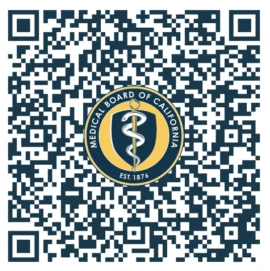March is National Colorectal Cancer Awareness Month. Among American adult men and women, colon cancer is the second-leading cause of cancer deaths. Therefore, learning more about colorectal cancer and how to prevent it is wise.
The experienced gastroenterologists at Digestive Disease Consultants of Orange County want everyone to be aware of the symptoms and risks for colorectal cancer, and how important it is to have routine colon cancer screenings. We offer these vital services and other help at all four of our California locations.
Why should I have a colon cancer screening?
Initially, colon cancer doesn’t present with noticeable symptoms, which is why colon cancer is often difficult to diagnose until it has significantly progressed. This is why periodic screening, especially if you are at a higher risk, should be an essential part of your overall health care routine.
Colon cancer typically begins in the intestinal mucosa cells, which initially form intestinal polyps. These are benign and remain harmless for many people, requiring no treatment. However, these polyps can develop into colon cancer over several years. A colonoscopy is an advanced screening that uses a light and a camera to examine the lining of your large intestine.
By examining these tissues on a large video screen, our gastroenterologists can discover polyps or other issues before they become serious problems. These polyps can then be removed and tested for cancerous cells. Removing problematic polyps early can prevent the development and spread of colorectal cancer.
What are the symptoms of colon cancer?
Many people who do not undergo routine colon cancer screenings may begin having certain complaints. This is usually only after a tumor has reached a certain size or the cancer has spread to other areas or organs. Some of the most common symptoms include:
Issues with bowel movements
If you experience problems with both constipation and diarrhea, it could be a warning sign of colon cancer. This can be because the tumor narrows the bowel. Stool builds up behind the tumor, is liquefied by bacterial decomposition, and is then expelled as diarrhea.
Muscle tension of the anal sphincter is reduced when colon cancer affects the muscle and disrupts its function. This can lead to embarrassing and troublesome accidents.
Issues with stool appearance or blood in your stool
Sometimes colon cancer changes the appearance or shape of your stool. Your bowel movements can appear very thin. If you’re over 40, male or female, and you notice any change in bowel habits that lasts longer than three weeks, you should contact Digestive Disease Consultants of Orange County to arrange a colon cancer screening as soon as possible.
Blood in your stool isn’t a specific sign of colon cancer, and can present with several other conditions, such as hemorrhoids. Intestinal infections or chronic inflammation can also cause bloody stools. Bright red or dark red blood in your stool can be an indicator of colon cancer conditions. Any blood in your stool should be reported to your gastroenterologist.
Issues with other symptoms
Colon cancer can also cause fever and fatigue. Unwanted weight loss is a sign of colon cancer that has significantly advanced. Colon cancer saps your energy, even though you may be eating as normal. This causes continued weight loss.
Advanced colon cancer usually involves a bleeding tumor that can cause anemia. Patients will display pale skin, poor performance, tiredness, and shortness of breath in many cases.
Am I at risk for colon cancer?
The American Cancer Society has connected colorectal cancer to several risk factors. These include:
- Age
- Family history
- Diet
- Alcohol and tobacco use
- Sedentary lifestyle
- Obesity
As you may notice, many of these factors are within your control. Improving your diet, eliminating tobacco and alcohol, becoming more active, and losing weight are all actions you can take to lower your risk for developing colon cancer.
Genetic connections aren’t a guarantee of getting colon cancer. Your actions are more important, placing you at a greater risk or lowering your risk.
Schedule a colon cancer screening
Colon cancer is best treated when it’s detected early. Plus, many other gastrointestinal disorders can be revealed and treated before they develop into serious problems. If you’re over 50 and haven’t had a colon cancer screening in the past 10 years, contact us by phone or schedule an appointment online at the location most convenient for you.



